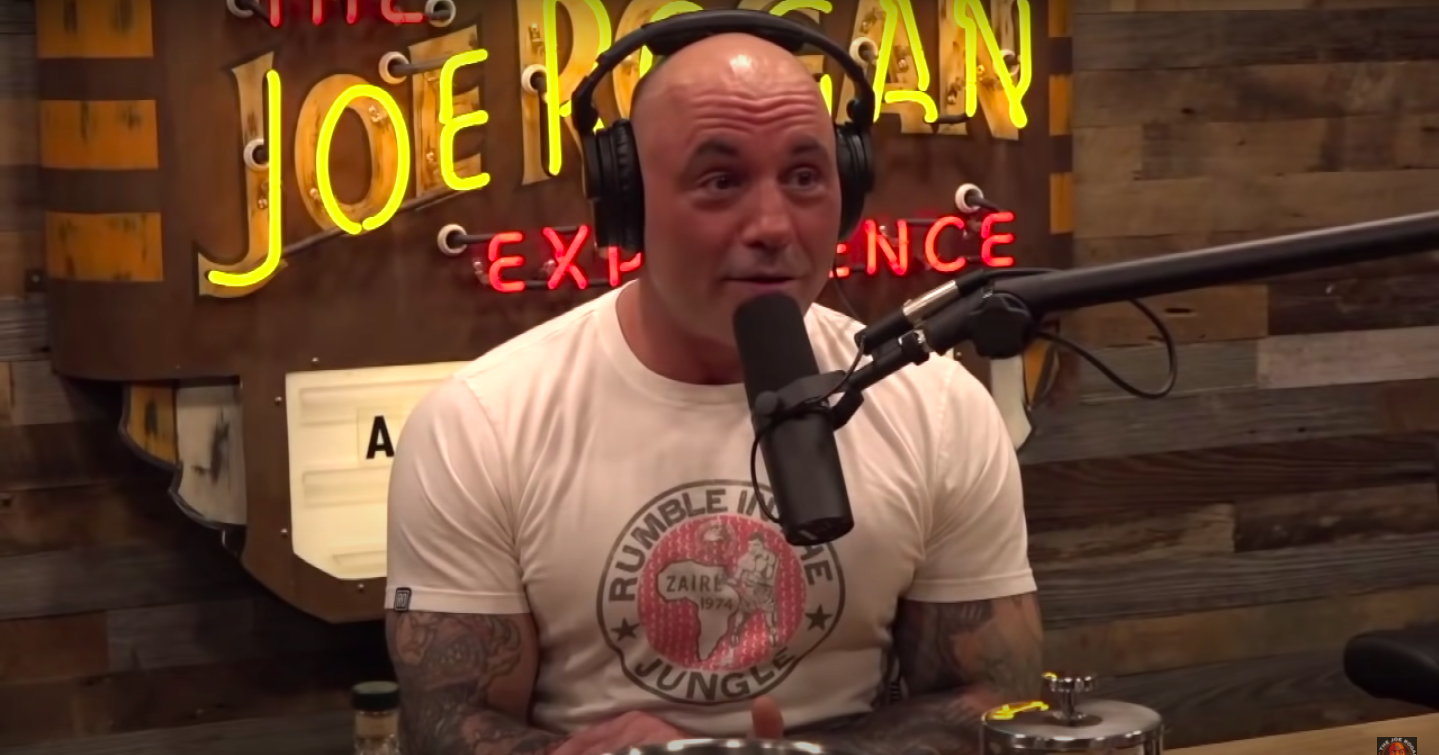Joe Rogan’s Interest in Zoos and Wildlife

Joe Rogan’s fascination with the natural world, particularly animals, is evident in his podcast discussions and personal anecdotes. His interest stems from a lifelong love for wildlife, often shared through stories of his encounters with animals and his views on conservation. This passion for the animal kingdom has naturally led him to discuss zoos and their role in both entertainment and conservation, often inviting experts to share their perspectives.
Rogan’s Personal Experiences with Zoos and Wildlife
Joe Rogan’s interest in animals extends beyond casual observation. He has actively engaged with wildlife, particularly in his younger years. He has spoken about his fascination with animals, including his encounters with various species in different environments. For instance, he has shared stories of his experiences in the Amazon rainforest, where he witnessed the diversity of animal life and the delicate balance of the ecosystem. These encounters have instilled in him a deep respect for the natural world and a desire to protect it.
Joe Rogan’s Podcast Discussions on Zoos and Wildlife
Joe Rogan’s podcast, “The Joe Rogan Experience,” has become a platform for exploring various topics, including the intricacies of the animal kingdom. He has invited numerous experts in zoology, animal behavior, and conservation to discuss their research, experiences, and perspectives. These conversations have shed light on the complexities of animal behavior, the ethical considerations surrounding zoos, and the importance of conservation efforts.
Guests with Expertise in Zoology, Animal Behavior, and Conservation
Joe Rogan’s podcast has featured guests with diverse expertise in zoology, animal behavior, and conservation. These experts have provided valuable insights into the world of animals and the challenges they face.
- Jane Goodall: A renowned primatologist and anthropologist, Goodall has dedicated her life to studying chimpanzees and advocating for their conservation. Her work has highlighted the similarities between humans and chimpanzees, emphasizing the importance of respecting and protecting all living creatures.
- Dr. Neil deGrasse Tyson: A renowned astrophysicist and science communicator, Tyson has discussed the interconnectedness of life on Earth, emphasizing the importance of preserving biodiversity and understanding our place in the universe.
- Dr. Robert Sapolsky: A neurobiologist and primatologist, Sapolsky has studied baboons in the wild, offering insights into the complexities of social behavior, stress, and the evolution of human behavior.
Joe Rogan’s Views on the Ethical Treatment of Animals in Zoos, Zookeeper joe rogan
Joe Rogan’s views on zoos are nuanced. He recognizes the potential for zoos to educate the public about animals and inspire conservation efforts. However, he has also expressed concerns about the ethical treatment of animals in captivity, particularly regarding the potential for boredom, stress, and limited space. Rogan has acknowledged the importance of creating environments that meet the needs of animals and promoting ethical practices in zoos.
Joe Rogan’s Views on the Role of Zoos in Conservation Efforts
Joe Rogan believes that zoos can play a vital role in conservation efforts. He has discussed the importance of zoos in breeding endangered species, providing a safe haven for animals facing threats in the wild, and educating the public about conservation issues. Rogan has also emphasized the need for zoos to prioritize the well-being of animals in their care and engage in research to further understand and protect endangered species.
The Intersection of Joe Rogan and the Zookeeper Community: Zookeeper Joe Rogan

Joe Rogan’s popular podcast, “The Joe Rogan Experience,” has become a platform for diverse voices and perspectives, including those from the zookeeping community. Rogan’s interest in animals and wildlife has naturally led to conversations with zookeepers, offering them a unique opportunity to share their insights and experiences with a vast audience.
Rogan’s Podcast as a Platform for Zookeepers
Rogan’s podcast has provided a platform for zookeepers to shed light on their work, the challenges they face, and the crucial role they play in animal welfare and conservation. Through these conversations, listeners gain a deeper understanding of the complexities of zookeeping and the dedication of individuals who work tirelessly behind the scenes.
The Impact on Public Perception of Zoos
Rogan’s platform has the potential to influence public perception of zoos. By featuring zookeepers and discussing their work, Rogan can help dispel misconceptions and foster a more informed understanding of the role of zoos in conservation, research, and education. Rogan’s discussions can highlight the importance of ethical animal care, responsible breeding programs, and the crucial role zoos play in protecting endangered species.
Advocating for the Profession and Conservation
Zookeepers can leverage Rogan’s platform to advocate for their profession and raise awareness about pressing conservation issues. By sharing their expertise and stories, they can connect with Rogan’s audience and inspire action.
Examples of Zookeeper Engagement
Several zookeepers have engaged with Rogan’s podcast and other platforms to connect with his audience. For example, [Zookeeper Name], a renowned primatologist, appeared on “The Joe Rogan Experience” to discuss the challenges of studying and conserving endangered primates. This conversation sparked widespread interest and raised awareness about the plight of these animals. Additionally, [Zookeeper Name], a conservation biologist, used Rogan’s platform to highlight the importance of habitat restoration and the role of zoos in supporting these efforts. These examples demonstrate the potential of Rogan’s platform to amplify the voices of zookeepers and contribute to broader conservation goals.
The Role of Zoos in Modern Society

Zoos have evolved from simple collections of exotic animals to complex institutions that play a vital role in modern society. They serve multiple purposes, ranging from education and entertainment to research and conservation.
Different Approaches to Zoo Management
Zoos today encompass a spectrum of approaches, each with its own philosophy and priorities.
- Traditional Zoos: These zoos prioritize entertainment and education, showcasing a wide variety of animals in enclosures that mimic their natural habitats. They often focus on visitor experience and providing a fun and engaging learning environment.
- Wildlife Sanctuaries: Sanctuaries are dedicated to rescuing and rehabilitating animals that have been injured, orphaned, or confiscated from illegal trade. They provide a safe haven for animals, often focusing on species that are threatened or endangered.
- Conservation Centers: Conservation centers prioritize research and breeding programs to support the survival of endangered species. They work closely with scientists and conservationists to develop strategies for reintroduction and habitat restoration.
A Hypothetical Zoo Exhibit: The Future of Conservation
Imagine a zoo exhibit that combines cutting-edge technology with interactive experiences to immerse visitors in the world of animal conservation.
- Virtual Reality Experiences: Visitors could use VR headsets to experience the challenges faced by endangered species in their natural habitats, such as habitat loss and climate change.
- Interactive Displays: Touchscreen displays could provide detailed information about animal species, their biology, and conservation efforts. Visitors could learn about the role of zoos in research and breeding programs.
- Live Animal Encounters: Through controlled environments and advanced technology, visitors could observe animals in more natural settings, fostering a deeper connection with the species they encounter.
Pros and Cons of Zoos
Zoos present a complex and often debated issue, with both potential benefits and drawbacks.
| Pros | Cons |
|---|---|
| Education and Awareness: Zoos educate the public about animal biodiversity, conservation issues, and the importance of protecting wildlife. | Ethical Concerns: Some argue that keeping animals in captivity, even in well-maintained zoos, is inherently unethical and infringes on their natural behaviors. |
| Research and Conservation: Zoos contribute to scientific research, breeding programs, and conservation efforts, supporting the survival of endangered species. | Limited Space and Natural Behaviors: Even the most spacious enclosures can’t replicate the complexity and vastness of natural habitats, potentially impacting animal behavior and well-being. |
| Economic Benefits: Zoos generate revenue through tourism and support local economies. | Potential for Disease Transmission: Zoos can present a risk of disease transmission between animals and humans, requiring careful management and biosecurity measures. |
Zookeeper joe rogan – Joe Rogan, known for his podcast and stand-up comedy, has a knack for bringing in interesting guests. He’s interviewed everyone from scientists to athletes, and even had a hilarious chat with comedian Adam Sandler, joe rogan adam sandler who’s known for his silly characters and relatable humor.
While Joe Rogan is a familiar face in the comedy world, his early career was actually as a zookeeper, a job he held before pursuing stand-up full time.
Zookeeper Joe Rogan is known for his wide-ranging conversations, from comedy to conspiracy theories. He’s also had some interesting guests on his podcast, including comedy giants like judd apatow. While Rogan’s approach to humor can be unconventional, Apatow’s comedic sensibilities have shaped the landscape of modern comedy.
It’s always interesting to see how different personalities and approaches to humor intersect in the world of entertainment.
